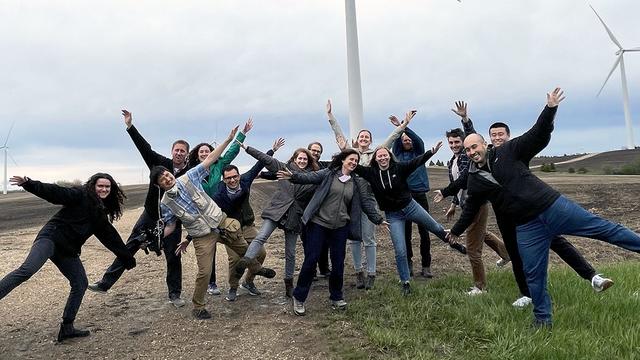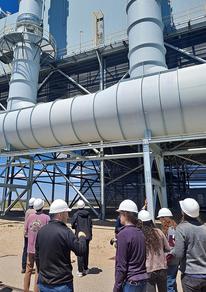Rural electric cooperatives, first created by local communities in the early part of the 20th century to electrify rural America, provide power to some 42 million people spread out over half of the U.S. landmass.
As such, these cooperatives are positioned to be key players in the nation’s transition to renewable energy sources.
Despite their prominence in rural America, “electric co-ops have been flying under the radar,” according to Associate Professor Gabe Chan of the Humphrey School of Public Affairs. Chan is paying attention to the ways that electric co-ops are adopting clean energy technologies.
Along with Keith Taylor, a researcher at the University of California Davis, Chan has established the Electric Cooperative Innovation Center to collaborate with co-ops on research into renewable energy, and better prepare students for careers in the field.
“Through the center, we’ve built a framework for partnerships between universities and electric cooperatives,” said Chan. Taylor adds that they are two of the only researchers looking at the electric cooperative sector and its role in the energy transition.
Chan taught a new course this past spring at the Humphrey School, Energy Transition in Rural America, which explored electric co-op governance, the intersection of the clean energy transition with rural communities, policies shaping utility innovation, and modernization challenges in rural areas.
“There are 800 electric co-ops around the country, and they have a very unique institutional structure: they’re not-for-profit, democratically controlled, reinvestment-focused utilities that serve the majority of rural areas," said Chan. "Because the energy transition is so complex, we need many more people to understand the important role that co-ops are playing."
Field trip: co-ops in action
The class culminated in a weeklong trip through Minnesota, North Dakota, and South Dakota, where the students visited 15 electric co-op facilities such as coal mines, wind farms, solar arrays, hydroelectric dams, and power plants.
The goal of the trip was to help students gain a deeper understanding of how the energy transition is reshaping economic opportunities in rural communities that host large-scale energy infrastructure.
"We took a lot of the concepts we learned in class, and it was great to see those in practice, in the real world," said Josh Anderson, one of the students on the trip.
The co-op managers, power plant operators, and other staff were pleased to meet with the students, show off their operations, and talk about the future.
The biggest takeaway from these visits? According to Greg Schutte, manager of field services for Great River Energy, “we've got to keep working together on all sides. Whether it's environmental or engineering or policy [expertise]—all of that has got to come together” to successfully transition to clean energy sources.
"And that's what we do at the university,” said Chan. “We bring in brilliant young minds, work with them for two years to develop their skills, and then put them back out in the real world."
Added student Devin Burri: "This was a unique experience that I won't forget."



